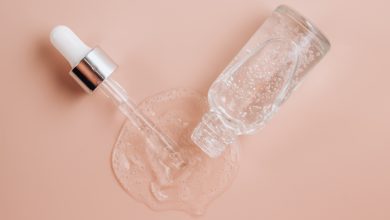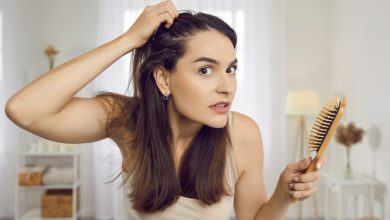The Role of Omega-3 Supplements in Enhancing Hair Growth

The Benefits of Omega-3 for Hair Health
Omega-3 fatty acids are essential for overall well-being, supporting heart health, reducing joint inflammation, and even easing symptoms of mood disorders. These polyunsaturated fats, particularly Omega-3 and Omega-6, play a key role in hormone regulation, enhancing immune function, and reducing inflammation.
Interestingly, Omega-3 supplements can also promote hair growth. They help by triggering chemical reactions in the body that boost serotonin and dopamine levels, which can reduce anxiety and improve overall mental health—both of which are linked to healthy hair growth.
How Omega-3 Supports Hair Growth
Hair growth happens in four stages: anagen, catagen, telogen, and exogen. The anagen phase is the most crucial, as this is when hair follicles receive essential nutrients like oxygen and keratin through blood circulation. Regular intake of Omega-3 fatty acids has been found to extend this phase, promoting hair growth. Fish oil, particularly from mackerel, is especially beneficial.
Omega-3 also improves blood circulation, encouraging the formation of new hair cells and helping to maintain hair in the growth phase for longer. Additionally, it reduces hair shedding during the telogen phase, making the overall hair growth cycle more effective.
Topical Application of Omega-3 for Hair Health
Applying Omega-3 topically can help repair damaged hair tissue by working directly on the roots. When combined with a nutritious diet, it can restore hair health and enhance growth. Omega-3 also increases the body’s natural biotin levels, which is essential for strong, shiny hair. Regular use can reduce hair fall while maintaining luster and texture.
For added benefits, applying fish oil directly to the scalp helps retain moisture and shine. However, for best results, topical application should be combined with dietary intake.
Things to Keep in Mind When Using Omega-3 Topically
One downside of using Omega-3-rich oils, like fish oil, on your hair is the strong odor. Many processed fish oils retain a distinct fishy smell, which can be unpleasant. Additionally, since Omega-3 supplements generally take about six months to show full results, dietary intake is often a more practical long-term approach. Topical use should be reserved for targeted treatments.
Best Natural Sources of Omega-3 for Hair Health
✔ Seafood: Cold-water fish such as mackerel, herring, tuna, and sardines are rich in Omega-3 and Omega-6. They help reduce skin inflammation, slow down aging, and improve hydration. Plus, they provide essential nutrients like Zinc and Vitamin E.
✔ Walnuts: A powerful plant-based Omega-3 source, walnuts also contain potassium, Vitamin C, and Vitamin E. These nutrients support skin health, protect against UV damage, and promote heart health.
✔ Flaxseeds: Packed with Omega-3, Vitamin E, manganese, and selenium, flaxseeds are great for digestion and gut health. They’re easy to incorporate into your diet by adding them to salads or smoothies.
✔ Sunflower Seeds: Low in cholesterol and rich in linoleic acid and Vitamin E, sunflower seeds help manage inflammation and blood sugar levels, making them especially beneficial for people with type 2 diabetes. They also have anti-aging properties for the skin.
What to Consider When Buying Omega-3 Supplements
✔ Dosage: Always check the actual Omega-3 content in supplements. Some capsules labeled as 500 mg may contain less than 100 mg of Omega-3 fatty acids.
✔ Freshness: Since fish-based supplements can become rancid over time, always check the manufacture date. Consuming expired or stale supplements can lead to unpleasant odors and possible health risks.
Final Thoughts
Most modern diets are heavy in Omega-6, making it crucial to balance this with enough Omega-3. Whether taken as a supplement, consumed through food, or applied topically, Omega-3 plays a significant role in promoting hair health. By understanding its benefits and best sources, you can make informed choices to support stronger, healthier hair.



